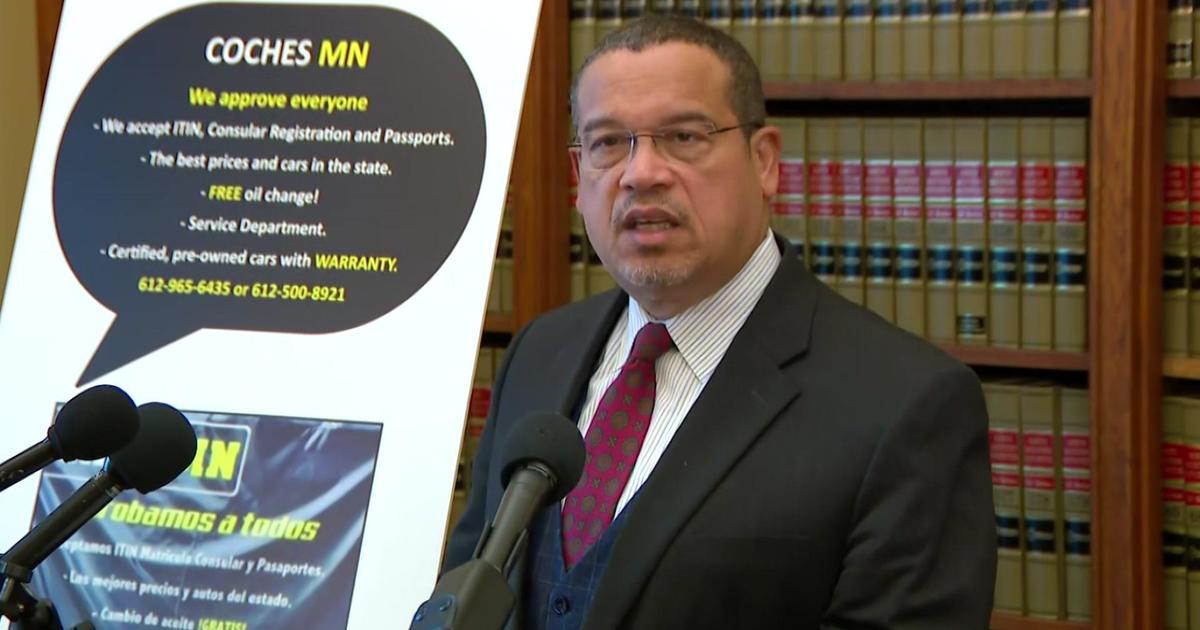Top Minnesota Officials Sort Out Sex Offender Program's Fate
ST. PAUL, Minn. (AP) — Minnesota is under federal court pressure to rework its program that locks up sex offenders even after they serve out prison terms, a system the state's political leaders have vigorously defended.
Come Monday, the challenge will be front and center as a cavalcade of lawmakers, program administrators and lawyers meet to discuss potential fixes to the Minnesota Sex Offender Program. The court conference is closed to the public. A coalition of media organizations, including The Associated Press, petitioned for access, but the judge denied the request.
The unusual assembly, sought by the federal judge who ruled the program unconstitutional in June, probably won't be the final word. But the eventual outcome could have a bearing on how 20 states with similar civil confinement programs deal with sex offenders.
WHAT'S AT STAKE?
There are currently 720 offenders — one is a woman — confined by court order in secure hospitals ringed by razor wire. Each was deemed a "sexually dangerous person" prone to committing new offenses.
In the treatment program's 21-year history, no one has ever been fully discharged but four have been granted provisional release, according to the Department of Human Services. That's created an expensive program — $120,000 annually per detainee — and a constitutional problem of effectively creating life sentences for people who have fulfilled their criminal punishment.
State political leaders have been reluctant to modify the program or create less-restrictive alternatives for the offenders; the prospect is wielded as a political club whenever it arises, with opponents of changes calling the risks too great.
In his June ruling, Judge Donovan Frank said he wasn't ready to release the offenders, but insisted on changes that recognize both public safety concerns and the rights of the patients involved.
"The balance is a delicate and important one," he wrote, "but it can and will be done."
WHO'S TASKED WITH CHANGE?
Gov. Mark Dayton, Attorney General Lori Swanson, House Speaker Kurt Daudt and Senate Majority Leader Tom Bakk lead a list of more than a dozen elected officials expected to attend Monday, as well as state agency commissioners, county prosecutors, sex crimes experts and many attorneys.
The attendees were told to be willing to lay out remedies. Dayton, a Democrat, said he'll have an "action plan" to present, while Daudt, a top state Republican, said he intends to mostly be listening.
"I will be very cautious not to misrepresent that the House will or will not do a certain thing until the House has an opportunity to debate and discuss that," he told AP last week.
Dan Gustafson, the lead attorney for sex offenders in the class-action lawsuit, said he has a list of changes for consideration, ranging from more regular mental health evaluations of patients to clearer discharge guidelines.
"I am certainly going to come with a set of minimum requirements that would satisfy my clients' interests," he said.
WHAT'S THE BROADER IMPACT?
Although the federal court's ruling applies only in Minnesota, challenges elsewhere are a possibility.
Minnesota's program is one of the nation's oldest, and its offender population is the biggest per capita. Roughly 129 offenders have been ordered into the state's program for every 1 million residents, far surpassing other states such as New York where 15 per million are confined.
California, New Jersey and Wisconsin are among the places where offenders who complete treatment are allowed to re-enter society.
"A lot of eyes are on this one and it is quite likely that other challenges will emerge in the wake of this one," said University of Kansas law professor Corey Rayburn Yung, who has studied legal issues surrounding sex offender programs, including in Kansas. "Minnesota is the first real test case."
WHAT'S THE TIMELINE?
Barring a surprise settlement, Monday's conference starts a remedy phase that could drag on for weeks or months. Once Frank issues a ruling about what must be done with the program, appeals could follow. Even then, it would likely require legislative action to make any substantive changes.
(© Copyright 2015 The Associated Press. All Rights Reserved. This material may not be published, broadcast, rewritten or redistributed.)



